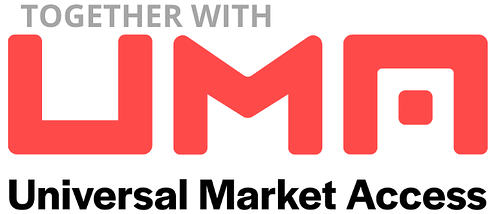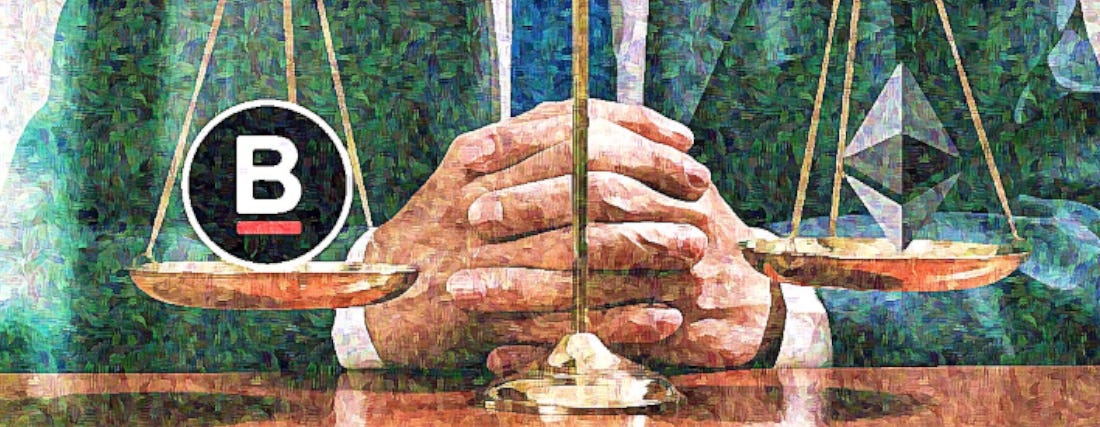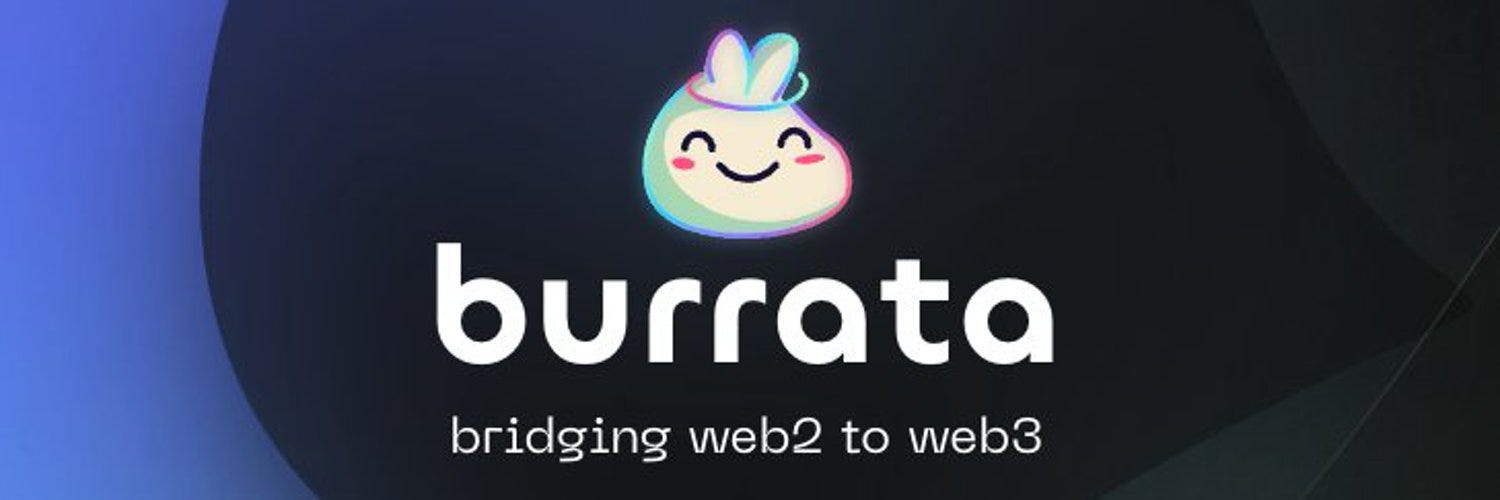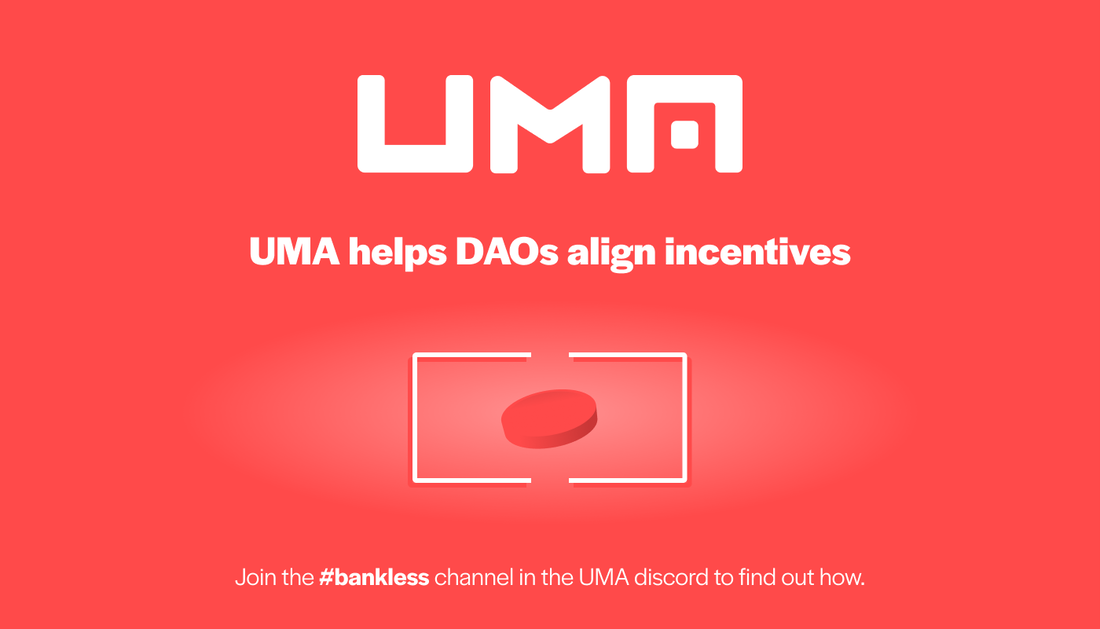Market Crashes and Crypto Regulation | Decentralized Law
Dear Crypto-Legal Observers, Why has the market crashed? This is the typical question asked by every crypto-evangelist going “long” on their belief of a better future. Suddenly, industry sentiment changes and cryptocurrency prices drop dramatically. People who leveraged their positions are liquidated and harmed. Sometimes these investors are hit so hard that they are forced to leave the crypto space altogether. These situations are not new. In a certain sense, price volatility is the essence of crypto. For experienced traders, this volatility can lead to large gains. But people with legal knowledge who understand the conditions in which the crypto markets operate see price performance through a different lens and ask themselves: is there a correlation between regulatory uncertainty and price volatility? Sometimes the answer is easy to discern. Most of us remember the impact that China’s crypto-mining ban had on the industry in May 2021. In other instances, it is more difficult to assess the impact of certain events on the crypto markets. For instance, what will happen after the White House releases its national security memorandum on crypto regulation in the coming weeks? Of course, these events may trigger strong forms of speculation, but the underlying problem—from a global perspective—seems always the same, namely: regulatory uncertainty. All this leads us to the paramount problem. Cryptocurrencies and Web3 have been firmly planted in the realm of freedom and innovation. Will eventual regulation have a positive impact on the markets, in making crypto more mature and fit for institutional investors? Or will regulation have negative consequences, fencing in liberty and innovation with heavy legal requirements? A contemplative answer to these questions is provided in Decentralized Law’s interview with Jacob Robinson. Jacob is a passionate crypto-lawyer and the host of the Law of Code podcast. With us, he explores the interplay of markets, regulation, and the future of crypto. Also in this issue of Decentralized Law, we discuss whether crypto is a good fit for global arbitration frameworks, analyze the ethics of lawyers accepting crypto for retainers, explore what it’s like to play in Ontario’s regulatory “sandbox,” and summarize news and articles from across the cryptoverse. Although this newsletter may help to familiarize readers with the legal implications arising out of blockchain technology, the contents of Decentralized Law are not legal advice. This newsletter is intended only as general information. Writers’ opinions are their own; therefore, nothing in this newsletter constitutes or should be considered legal advice. Contact a legal expert in your jurisdiction for legal advice. Contributors: eaglelex, lion917, hirokennelly.eth, COYSrUS.eth, Trewkat, lawpanda, Cheetah, ComeBackKid, G0xse, tromso, permioth, B(3,A)Rhunter, Nittra This is the official legal newsletter of BanklessDAO. To unsubscribe, edit your settings. 🎙 InterviewJacob Robinson Discusses Regulatory Impacts, Crypto Markets, and Bullish Builders
In my second year of law school I took a cross-border payments course. This was my first introduction to concepts such as remittances. I also learned the function of a clearinghouse. I was amazed at the inefficiency that was—and still is—the central banking system. Fast forward a few months, and I enrolled in a blockchain and the law course, the first of its kind in Canada. Looking around the class of 13 students, it felt a lot like I imagined the early computer programming classes felt. Everyone was curious, and no one really knew what they were doing. After the first lecture, I was hooked. I realized this was more than a speculative investment and started experimenting with crypto. Since then, I’ve spent a few hours every day learning, reading and writing about the intersection of blockchain technology and the law. For the remainder of law school, every class with a paper component I turned into something about blockchain. Sports and entertainment law? How smart contracts can be used for incentive-based contracts. European Union law? How to remedy an immutable blockchain with the right to be forgotten enumerated in the GDPR. And I’m still learning every day from the brightest minds in the space, who graciously share alpha on Twitter and their time with me on the Law of Code podcast.
I think correlation is inevitable, because any concern adds to the FUD. We are in such an early stage—most projects are as much promise as they are product. The biggest issue highlighted by many lawyers in the space is the regulatory uncertainty. Without a clear framework or understanding of how the law applies to this nascent technology, it’s like playing football with a basketball referee. Confusing.
Have you ever tried to play a board game without knowing the rules? It’s hard. And not fun. It’s also what most projects in this space go through on a daily basis. Regulatory certainty allows projects to implement creative solutions to existing problems, as they know where they stand with regulatory bodies. Not only can the founders and core devs sleep at night, but it also assures a fair game between the different competitors. If someone follows the rules, they should not be punished. Unfortunately, many projects who chose to follow the path according to regulators ended up far worse off.
I don’t know anyone who has invested a serious amount of time learning how this technology works who is bearish on crypto long term. The lawyers I speak with are excited, optimistic, and building the future. I’ve been lucky to interview brilliant lawyers who, while they may be skeptical of impending regulation, all believe in the long-term success and inevitable ubiquity of crypto.
I think any “immediate” regulatory intervention could have unintended consequences. A fast-moving approach to regulation is both dangerous and destabilizing. Regulators need to understand the technology, understand the consequences, and understand their goals. Why are they regulating? What are they hoping to achieve? With the end in mind, they can then work backwards, speak with experts in the space, and determine the path necessary to achieve the desired outcome. I think any immediate intervention that does not adhere to a sound and responsible plan is dangerous to crypto. It’s even more dangerous to the broader society these regulators are paid to protect. ⚖ DevelopmentsUsing Investment Treaties to Arbitrate Crypto-Related Disputes
Author: Cheetah An Investment Treaty (IT) is an agreement between two or more sovereign nations which aims to facilitate reciprocal private investments by individuals and corporations. If a host state violates the terms of an IT, the investor has the right to bring a claim against that state before an institutional or ad-hoc arbitral tribunal. An IT will often provide the jurisdictional requirements, substantive protections, and procedures for dispute resolution. Taken together, this process is referred to as investment arbitration. Blockchain technology and the cryptocurrency industry has been fertile territory for legal scholars, and for good reason. As of early February 2022, cryptocurrencies have a market capitalization of $2 trillion, an astounding figure considering the industry emerged a mere decade ago. As part of this growth, the crypto industry spends billions in foreign direct investment each year. But this growth of industry and spread of capital necessitates protections under current investment laws for crypto investors. The IT regimes could be a good framework for these protections, but questions remain regarding jurisdiction, classification of assets as investments, and calculation of damages. Hence, it is important to understand how cryptocurrencies could be afforded protections under ITs. To bring a valid claim under an IT, the chain of determinations by arbitral tribunals must establish jurisdiction, find a violation of a substantive right, and calculate damages. Establishing JurisdictionEstablishing jurisdiction is the first and most crucial aspect of a tribunal’s determination. The tribunal must decide whether the investor has made an “investment” under the provisions of the relevant IT. Arbitral precedent under the International Centre for Settlement of Investment Disputes (ICSID) Convention provides that the general requirements for an “investment” are: (1) contribution, (2) duration, (3) risk, and (4) benefit for the host country. This is known as the Salini Test. Tribunals outside the ICSID Convention adopt a more liberal approach, and generally define an “investment” to include:
There are several considerations when determining what constitutes an “investment,” including: I. Can cryptocurrencies be included within the current definitions of “investment” under ITs?Let’s unpack the general inclusions of the term “investment.” The tribunal in Siemens v. Argentina defined an investment as “any kind of asset.” Under this broad definition cryptocurrencies, as intangible digital assets, qualify as investments. II. Do cryptocurrencies conform to the territorial nexus requirement?It is a general requirement that an investor has to establish a territorial nexus to the contracting state in order to bring an investment claim. Most often, the cryptocurrency transactions happen on a public blockchain with no territorial nexus, as the cryptographic keys for a crypto wallet are held on the blockchain without a specific, physical location. The Abaclat tribunal’s approach provides an interesting way to deal with this issue. While commenting on intangible assets, the tribunal stated that “the relevant criteria should be where and/or for the benefit of whom the funds [were] ultimately used, and not the place where the funds were paid out or transferred.” Under the tribunal’s language, intangible assets such as crypto would appear to satisfy this requirement if the funds were used in the host state. III. Are cryptocurrencies compliant with domestic laws?The broad scope of “investment” described herein may not apply in all jurisdictions. Some ITs confine this definition to that which is included in the “laws and regulations of the Contracting Party receiving it.” This would create an obstacle if cryptocurrencies are viewed unfavorably or have limited usage in a country, limiting the instances in which IT jurisdiction would be conferred. Domestic laws for cryptocurrencies are still in the nascent stage, with the majority of nations yet to address the situation at all. Violation of a Substantive RightOnce conferred the status of “investment,” cryptocurrencies will be given a host of protections against violations by the host state. A few such investor protections are against:
As a simple example, say there is a crypto mining plant in Canada and the Canadian government decides to ban mining of cryptocurrencies. This action neutralizes the plant’s operations. Here, a claim for expropriation may be triggered and the foreign crypto investor can argue a case for compensation. If actions are taken by the host state that infringe on any protection conferred under the ITs, it gives rise to a valid claim. Calculation of DamagesThe internationally recognized standard to compensate the investor is to place them in a position as if the violation had not been committed. Since full restitution is not often possible, tribunals often resort to monetary compensation. There are several approaches for determining compensation: market approach, income approach, and asset-based valuation. For the latter, physical assets can be easily assessed using comparison techniques, but valuing cryptocurrencies is a challenge given the inability to classify them into one single group. All three valuation methods are skewed by the metrics that apply only to traditional currencies. Due to this disconnect, many alternatives have been discussed. The most attractive alternative approach relies on the nature, function, and price movement of the specific token or cryptocurrency in question. The crypto ecosystem is rapidly advancing and standards for managing these issues will emerge. In the meantime, much of the onus will fall on the arbitral tribunal to decide issues of valuation and calculation of damages on an ad-hoc basis. Emerging TrendsThe general trend in international investment law is towards better protection for digital asset investors. At present, much of the uncertainty arises from domestic laws. While issues exist with jurisdiction, the definition of “investment,” and the valuations of cryptocurrencies under ITs, some standards are emerging. Countries are already formulating standards for classification of cryptos. Because the crypto market is so large, definitive steps must be taken to facilitate dispute resolution for crypto investors under ITs. To permit crypto investors to take advantage of arbitration provisions in ITs, we must work towards defining cryptocurrencies as assets, property, or other items under IT; creating robust methods to fairly value cryptocurrencies; and establishing clear domestic guidelines dealing with the use of cryptocurrencies. A symbiotic relationship between investment arbitration and cryptocurrencies is beneficial to the entire crypto space. Progressive regulations and a robust practice are essential to take full advantage of that symbiosis. ETH is Ultrasound Money!**Unless You’re Trying to Pay a U.S. Attorney’s Retainer
Author: lawpanda Attorneys practicing in the United States are required to follow certain accounting and ethical standards when receiving and retaining client funds as payment for future costs and services. Each state adopts its own set of standards, though they are similar enough to discuss as monolithic requirements for U.S. attorneys. Funds received for future work are generally called a “retainer” and the transaction is ideally—though not always—documented by a written “retainer agreement.” When an attorney or a law firm holds fiat funds as a retainer, or in escrow or anticipation of disbursing a settlement, a trust account must be used to segregate these funds and avoid commingling between operating and other accounts. Attorney trust accounts are subject to stringent requirements, including approval of the banking entity by the state’s bar association. As written and implemented, these requirements create a significant, if not total, impediment to the retention of cryptocurrencies in attorney trust accounts. Based on current guidance the general rule seems to be that an attorney may accept and retain crypto as advance payment for future work provided that the fee is reasonable, the agreement is affirmed in writing demonstrating the client’s understanding and informed consent, and that the fee arrangement otherwise complies with the jurisdiction’s rules of professional conduct. The IRS Treats Crypto as a CommodityLegal ethical rules in most U.S. jurisdictions treat cryptocurrencies as a commodity and recognize it as a property asset with its value tied to market demand, as opposed to a form of traditional fiat currency. This characterization is based upon the U.S. Internal Revenue Service’s definition of “virtual currencies.” These same ethical rules allow attorneys to accept a variety of property assets in addition to cryptocurrencies, including gold, artwork, and ownership interest in the form of corporate stock as advance payment for future work. Payment in non-fiat assets must be documented in a written “alternative fee agreement” to comply with ethical requirements. Alternative fee agreements are subject to the same general requirements as other attorney-client fee agreements—however volatility and the property-like nature of non-fiat assets create additional ethical considerations and require additional disclosures and confirmation of client understanding which are not required when utilizing fiat funds. Additional Ethical Concerns for Attorneys Retaining Client Funds in CryptoAs with client retainers paid in fiat funds, attorneys engaging in alternative fee agreements and entrusted with the property of clients must hold that property with the care required of a professional fiduciary. This means the attorney or firm must be competent in the underlying technology in order to ensure the safety and protection of client funds and must appropriately segregate the assets from those of the attorney and other clients. These requirements are meant to eliminate the risk of commingling or other potential impropriety. The quickest and most likely way for a U.S. attorney to be disciplined or disbarred is to allow the comingling of a client retainer and firm or personal funds before the fees are earned. In addition to concerns regarding segregation of retainers from other funds, payment in crypto implicates two additional potential issues. First, there is a prohibition against agreements for “unreasonable fees.” The shifting value of non-fiat assets and desire to protect the client from over or underpayment is stated as the primary reason for this concern. The second concern is that an alternative fee agreement contains the qualities of a business transaction with the client. Engaging in business transactions with a client will generally require providing the client an opportunity to obtain separate counsel to negotiate the fee agreement, due to the potential conflict of interest between client and putative counsel. To alleviate these issues, a comprehensive alternative fee agreement can address the potential ethical concerns and ensure compliance with relevant ethical rules. Current Advisory Opinions Are Only Somewhat HelpfulIn the context of attorneys who are operating in the crypto space, current ethics opinions regarding acceptance and retention of crypto payments seem only somewhat helpful. Because each U.S. jurisdiction sets and implements its own rules of professional conduct, there are often technical differences in the requirements for each jurisdiction and the current opinions provide an incomplete framework of guidance. Additionally, ethics opinions often only address very specific, often esoteric, ethical issues and regularly reach similarly narrow conclusions. For example, the New York City Bar’s opinion is premised on the proposition that an attorney is requiring clients to pay in crypto. It seems less likely that a firm would demand payment in crypto from an unsuspecting and unsophisticated client, as opposed to the client expecting the firm to accept crypto. Nebraska’s opinion requires an attorney receiving crypto as a retainer to immediately convert it into U.S. dollars to allow the funds to be deposited into a trust account. Requiring a law firm to exchange crypto into dollars upon receipt seems problematic for a variety of reasons that should be readily apparent. A further problem is that legal ethics opinions are usually written for a generalized audience, meaning explanations of crypto are framed in simplistic language that often misses or misstates technical nuances between types of assets and mechanisms of payment. Current U.S. legal ethics opinions don’t seem to consider that attorney-client agreements and payments in the crypto space are generally taking place between sophisticated individuals and entities who are familiar with how cryptocurrencies operate and their inherent volatility. Because current ethics opinions are targeted for the widest potential audience, alternative or more technical mechanisms that might be used by sophisticated practitioners and their clients to retain and disburse crypto client retainers are not usually contemplated or addressed. One example of a technical, decentralized, and blockchain-centric mechanism to hold and disburse client funds in a manner that arguably complies with ethical requirements for holding client assets may be LexDAO’s LexLocker. LexLocker is an on-chain “multi-track, arbitrable escrow for Ethereum business transactions summoned by LexDAO legal engineers.” Using LexLocker, users can lock funds in the contract pursuant to their legal agreements and settle the payments encoded therein as work is completed. This mechanism arguably mirrors disbursements of fiat funds from a trust account once work has been performed. This is just one potential mechanism that would facilitate safeguarding client retainers. However, the U.S. legal field tends to demand skeuomorphic solutions to issues presented by changes in the technological landscape. Escrowing funds in a smart contract may ultimately prove too novel a concept for recommendation by a legal ethics committee or widespread adoption among current practitioners. TL;DR: This is Not Legal Advice and DYORAttorneys practicing in U.S. jurisdictions with crypto-centric clients should be able to receive payment in crypto for flat-rate and invoiced work without issue. However, when receiving and holding client retainers for future work, attorneys must ensure they comply with the jurisdiction’s rules of professional conduct. It is important to note that the potential risks faced by an attorney accepting cryptoassets as a retainer are entirely based on the strict construction and application of the relevant ethical rules, which could eventually be modified so payment of a retainer in cryptocurrency is treated the same as payment in fiat funds. Additionally, and potentially most important, attorneys who accept retainers in cryptocurrencies must be competent in utilizing the technology and able to protect the client’s assets. In this case, competence requires that attorneys understand and safeguard against the many ways cryptocurrency can be stolen or lost. In the same way an attorney might be disciplined for depositing a fiat client retainer into their personal account or the firm’s operating account, an attorney accepting a crypto retainer could be disciplined for falling prey to a phishing attack, for losing access to the wallet containing the funds, or for simply sending funds to be disbursed back to the client to the wrong wallet address. 🏛 RegulationFintech Sandboxes Allow Us To Play, Regulation Free
Author: ComeBackKid In the fintech space, innovation and regulation have always had a tumultuous relationship. Tech entrepreneurs have sought to boldly go where no one has gone before, while regulators struggled to keep up and fulfill their mandate—ensuring that progress does not threaten market stability in general, and investors in particular. This scenario is currently playing out in the blockchain/crypto space, and is impacting DAOs, which are flourishing across the globe. The most acute challenge for legislators is decades-old legislation that was never meant to address the current issues. By way of example, the United States Securities Act dates back to 1933, while the Ontario Securities legislation was last revised in 1990. Trying to fit the challenges brought by blockchain and DAOs into these antiquated frameworks is a tall order indeed. To their credit, financial regulators are not standing still. A good number of them have come to recognize that finding innovative ways to protect market stability and investors, while allowing innovation to flourish, is the primary directive. To this end, a slew of what have come to be called “regulatory sandboxes” have sprung up in various jurisdictions across the globe. What is a sandbox? After reviewing several descriptions, the following seems most apt: “A regulatory sandbox is a legal classification that creates a space where participating businesses won’t be subject to onerous regulations—usually for a limited amount of time. The point is to allow these businesses to “play” in the sandbox without regulations to see if innovative ideas and products can get traction and enter the market” (State Policy Network). In future issues of Decentralized Law, we will cover regulatory sandboxes in various jurisdictions. We’ll start with the province of Ontario, Canada. OSC LaunchPad - The Innovation OfficeThis initiative launched in the spring of 2020 and became fully operational in March 2021. The OSC describes its role as follows: “The Innovation Office assists, fosters and, where possible, tests innovative business models and methods in capital formation, transaction and service efficiency and fairness. The Innovation Office builds on the foundation established by OSC LaunchPad, which has worked directly with over 300 new and innovative firms since 2016, helping them to navigate securities laws.” “As a part of the Innovation Office, the LaunchPad team continues their hands-on work within the Innovation Office’s broader mandate to deepen engagement with the innovation community and build a stronger ecosystem. The Innovation Office brings together insights from working with the fintech and other innovation communities across Ontario to further the OSC’s progress in making regulation more efficient.” (OSC Website). This initiative is an important development for market participants, especially for early stage fintech companies. Securities legislation traditionally takes an all-inclusive approach and places the onus on market participants to apply for and justify exemptions. The Innovation Office now provides a more formal mechanism for blockchain and crypto companies to gain clarity and certainty with respect to securities laws and exemptive relief as they continue to innovate and build their businesses. The sample decisions listed below demonstrate exemptions can be both narrow and time limited, and while there is no green light for full speed blockchain innovation or any type of ICOs, regulatory sandboxes are a step in the right direction. EligibilityTo qualify for participation in Ontario’s regulatory sandbox, businesses must meet the following criteria:
Recent Decisions from the Ontario Securities CommissionWealthsimple Digital Assets Inc. Simply Digital Technologies Inc. (doing business as CoinSmart) 🙏 Sponsor: UMA - Making financial markets universally accessible. DAO Better. 🌐 News and Selected Articles
China Introduces State-backed NFT Platform Unlinked to CryptocurrenciesAuthor: Coco Feng 🔑 Insights:
Hong Kong Monetary Authority Considers Regulation of StablecoinsAuthor: Hong Kong Monetary Authority 🔑 Insights:
Russia Approves Roadmap for Crypto RegulationAuthor: Chris Smith 🔑 Insights:
Government to Strengthen Rules on Misleading Cryptocurrency AdvertsAuthor: HM Treasury 🔑 Insights:
New Bill Would Hand Treasury Blank Check to Ban Crypto at ExchangesAuthors: Jerry Brito and Peter Van Valkenburgh 🔑 Insights:
🧱 DAO Legal ToolsKYC With Ease: Burrata’s Digital Identity SolutionAuthor: eaglelex Regulations are coming, and some of them are coming for our identity. To get ahead of this inevitability, identity verification should be connected to our digital wallets and it should be decentralized. Burrata shares this vision. Burrata is a new company building developer tools for the future of identity verification, and it recently raised $7.75 million from payments company Stripe and crypto venture firm Variant. Burrata is providing tools to help developers build decentralized identity solutions to fulfill know-your-customer (KYC) requirements. Current KYC requirements are extremely expensive. According to one of Burrata’s cofounders, small crypto projects lack the resources to navigate compliance burdens. These compliance burdens limit the potential of innovative projects working in DeFi and across Web3. The basic concept is that identity, credit scores, and social network reputation metrics will help make the Web3 markets much more efficient and accessible to people new to crypto. The broadening of Web3 markets would be a sign that the industry is becoming more mature and ready to onboard institutional investors. Burrata’s KYC solution is to issue “digital identity tokens” composed of the relevant data points required by applicable law. Once set up, these tokens are accessible from users’ digital wallets, letting them pass through KYC gates without re-verifying or providing their sensitive data. According to Burrata’s ambitious plans, its integration layer will help bridge consumer identity and data from siloed Web2 systems into Web3. This integration layer will help standardize, process, and prioritize the influx of Web2 data as it moves on-chain. Burrata believes its integration layer will be able to onboard the next billion users and their on-chain profiles into crypto, DeFi, and novel protocols not yet known. ☢️ Action Items📚 Read The BANK Token - A Legal Assessment👩⚖️ Join the BanklessDAO Legal Guild 🏴⚔ Join LexDAO🐵 Join the LeXpunK Army🚨 Contact your Representatives or Senators🙏 Thanks to our sponsorUMAUMA can help DAOs achieve their goals by incentivizing their community. UMA’s KPI options align incentives and build loyalty through airdropping options tokens, which pay out a variable amount of the protocol’s token depending on the KPI metric being tracked, giving the community a powerful motivator and focussing their efforts to collaboratively achieve the protocol's aims. If the metric is not fully achieved, the residual amount is returned to the DAO treasury. The BanklessDAO Legal Guild has used KPI options to crowdsource international legal opinion on the regulatory space that surrounds DeFi. If you liked this post from BanklessDAO, why not share it? |
Older messages
Uffizi Gallery Explores Masterpieces as NFTs | Decentralized Arts
Monday, January 31, 2022
BanklessDAO Weekly NFT and Cryptoart Newsletter
Breaking Down BANK Tokenomics | BanklessDAO Weekly Rollup
Saturday, January 29, 2022
Catch Up With What Happened This Week in BanklessDAO
NFT Flippers & DAOpunks | Decentralized Arts
Monday, January 24, 2022
BanklessDAO Weekly NFT and Cryptoart Newsletter
Operational Security: Upskilling Your Online Safety Game | BanklessDAO Weekly Rollup
Saturday, January 22, 2022
Catch Up With What Happened This Week in BanklessDAO
LeXpunK Army Deploys | Decentralized Law #3
Thursday, January 20, 2022
BanklessDAO Legal Newsletter
You Might Also Like
Central African Republic’s CAR memecoin raises scrutiny
Friday, February 14, 2025
Allegations of deepfake videos and opaque token distribution cast doubts on CAR's ambitious memecoin project. ͏ ͏ ͏ ͏ ͏ ͏ ͏ ͏ ͏ ͏ ͏ ͏ ͏ ͏ ͏ ͏ ͏ ͏ ͏ ͏ ͏ ͏ ͏ ͏ ͏ ͏ ͏ ͏ ͏ ͏ ͏ ͏ ͏ ͏ ͏ ͏ ͏ ͏ ͏ ͏ ͏ ͏ ͏ ͏
January CEX Data Report: Significant Declines in Trading Volume Across Major CEXs, Spot Down 25%, Derivatives Down…
Friday, February 14, 2025
According to data collected by the WuBlockchain team, spot trading volume on major central exchanges in January 2025 decreased by 25% compared to December 2024. ͏ ͏ ͏ ͏ ͏ ͏ ͏ ͏ ͏ ͏ ͏ ͏ ͏ ͏ ͏ ͏ ͏ ͏ ͏ ͏
Previewing Coinbase Q4 2024 Earnings
Friday, February 14, 2025
Estimating Coinbase's Transaction and Subscriptions & Services Revenue in Q4 2024 ͏ ͏ ͏ ͏ ͏ ͏ ͏ ͏ ͏ ͏ ͏ ͏ ͏ ͏ ͏ ͏ ͏ ͏ ͏ ͏ ͏ ͏ ͏ ͏ ͏ ͏ ͏ ͏ ͏ ͏ ͏ ͏ ͏ ͏ ͏ ͏ ͏ ͏ ͏ ͏ ͏ ͏ ͏ ͏ ͏ ͏ ͏ ͏ ͏ ͏ ͏ ͏ ͏ ͏ ͏ ͏
ADA outperforms Bitcoin as Grayscale seeks approval for first US Cardano ETF in SEC filing
Friday, February 14, 2025
Grayscale's Cardano ETF filing could reshape ADA's market position amid regulatory uncertainty ͏ ͏ ͏ ͏ ͏ ͏ ͏ ͏ ͏ ͏ ͏ ͏ ͏ ͏ ͏ ͏ ͏ ͏ ͏ ͏ ͏ ͏ ͏ ͏ ͏ ͏ ͏ ͏ ͏ ͏ ͏ ͏ ͏ ͏ ͏ ͏ ͏ ͏ ͏ ͏ ͏ ͏ ͏ ͏ ͏ ͏ ͏ ͏ ͏
AI project trading tips: investment targets and position management
Friday, February 14, 2025
This interview delves into the investment trends, market landscape, and future opportunities within AI Agent projects. ͏ ͏ ͏ ͏ ͏ ͏ ͏ ͏ ͏ ͏ ͏ ͏ ͏ ͏ ͏ ͏ ͏ ͏ ͏ ͏ ͏ ͏ ͏ ͏ ͏ ͏ ͏ ͏ ͏ ͏ ͏ ͏ ͏ ͏ ͏ ͏ ͏ ͏ ͏ ͏ ͏
DeFi & L1L2 Weekly — 📈 Polymarket recorded a new high of 462.6k active users in Jan despite volume dip; Holesky a…
Friday, February 14, 2025
Polymarket recorded a new high of 462600 active users in January despite volume dip; Holesky and Sepolia testnets are scheduled to fork in Feb and Mar for Ethereum's Pectra upgrade. ͏ ͏ ͏ ͏ ͏ ͏ ͏ ͏
DeFi & L1L2 Weekly — 📈 Polymarket recorded a new high of 462.6k active users in Jan despite volume dip; Holesky a…
Friday, February 14, 2025
Polymarket recorded a new high of 462600 active users in January despite volume dip; Holesky and Sepolia testnets are scheduled to fork in Feb and Mar for Ethereum's Pectra upgrade. ͏ ͏ ͏ ͏ ͏ ͏ ͏ ͏
Donald Trump taps crypto advocate a16z’s Brian Quintenz for CFTC leadership
Friday, February 14, 2025
Industry leaders back Brian Quintenz's nomination, highlighting his past efforts at the CFTC and potential to revamp crypto oversight. ͏ ͏ ͏ ͏ ͏ ͏ ͏ ͏ ͏ ͏ ͏ ͏ ͏ ͏ ͏ ͏ ͏ ͏ ͏ ͏ ͏ ͏ ͏ ͏ ͏ ͏ ͏ ͏ ͏ ͏ ͏
⚡10 Tips to Make a Living Selling Info Products
Friday, February 14, 2025
PLUS: the best links, events, and jokes of the week → ͏ ͏ ͏ ͏ ͏ ͏ ͏ ͏ ͏ ͏ ͏ ͏ ͏ ͏ ͏ ͏ ͏ ͏ ͏ ͏ ͏ ͏ ͏ ͏ ͏ ͏ ͏ ͏ ͏ ͏ ͏ ͏ ͏ ͏ ͏ ͏ ͏ ͏ ͏ ͏ ͏ ͏ ͏ ͏ ͏ ͏ ͏ ͏ ͏ ͏ ͏ ͏ ͏ ͏ ͏ ͏ ͏ ͏ ͏ ͏ ͏ ͏ ͏ ͏ ͏ ͏ ͏ ͏ ͏ ͏ ͏ ͏ ͏ ͏
Interview with CryptoD: How He Made $17 Million Profit on TRUMP Coin
Friday, February 14, 2025
Author | WUblockchain, Foresight News ͏ ͏ ͏ ͏ ͏ ͏ ͏ ͏ ͏ ͏ ͏ ͏ ͏ ͏ ͏ ͏ ͏ ͏ ͏ ͏ ͏ ͏ ͏ ͏ ͏ ͏ ͏ ͏ ͏ ͏ ͏ ͏ ͏ ͏ ͏ ͏ ͏ ͏ ͏ ͏ ͏ ͏ ͏ ͏ ͏ ͏ ͏ ͏ ͏ ͏ ͏ ͏ ͏ ͏ ͏ ͏ ͏ ͏ ͏ ͏ ͏ ͏ ͏ ͏ ͏ ͏ ͏ ͏ ͏ ͏ ͏ ͏ ͏ ͏ ͏ ͏ ͏ ͏ ͏ ͏ ͏ ͏









